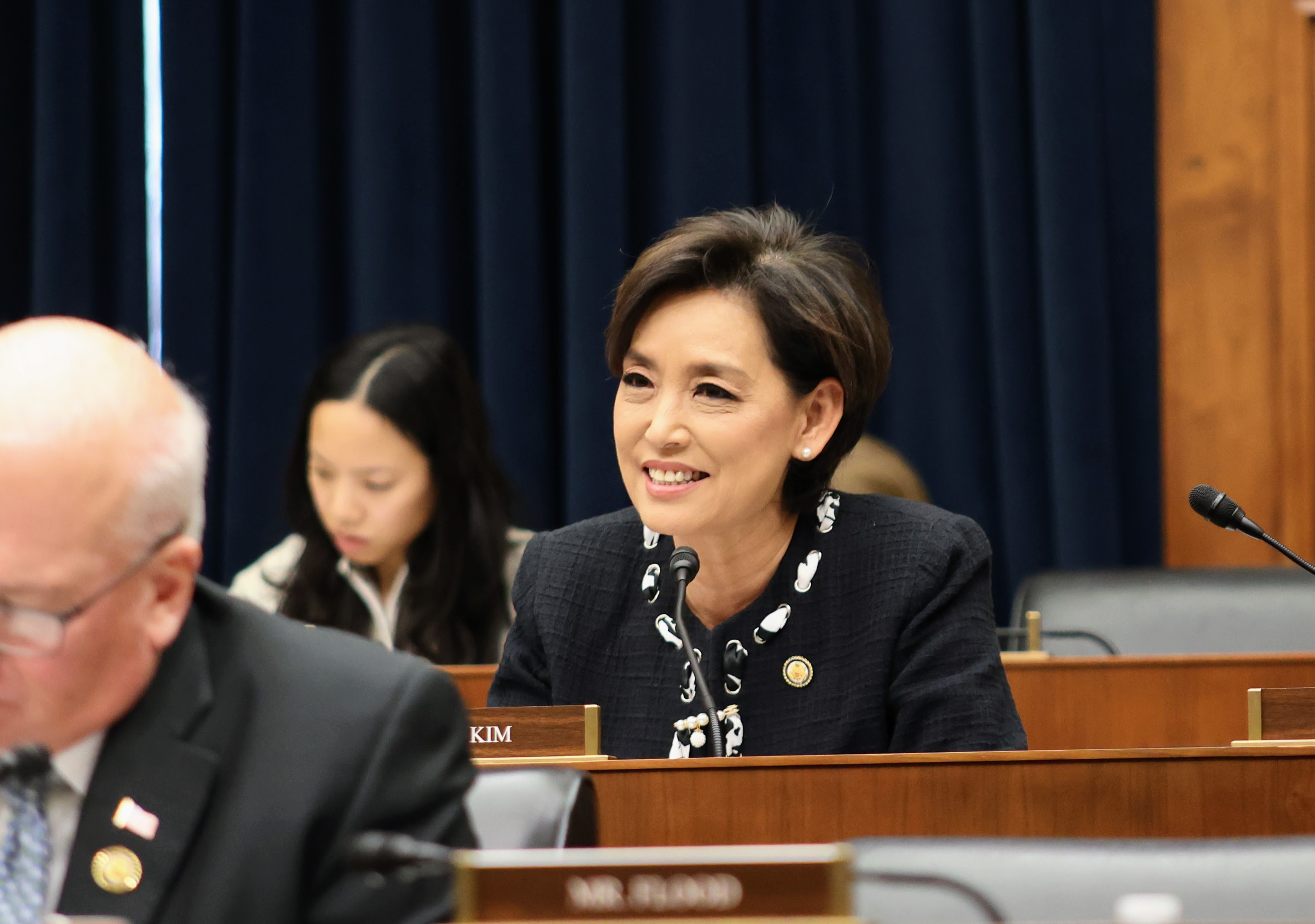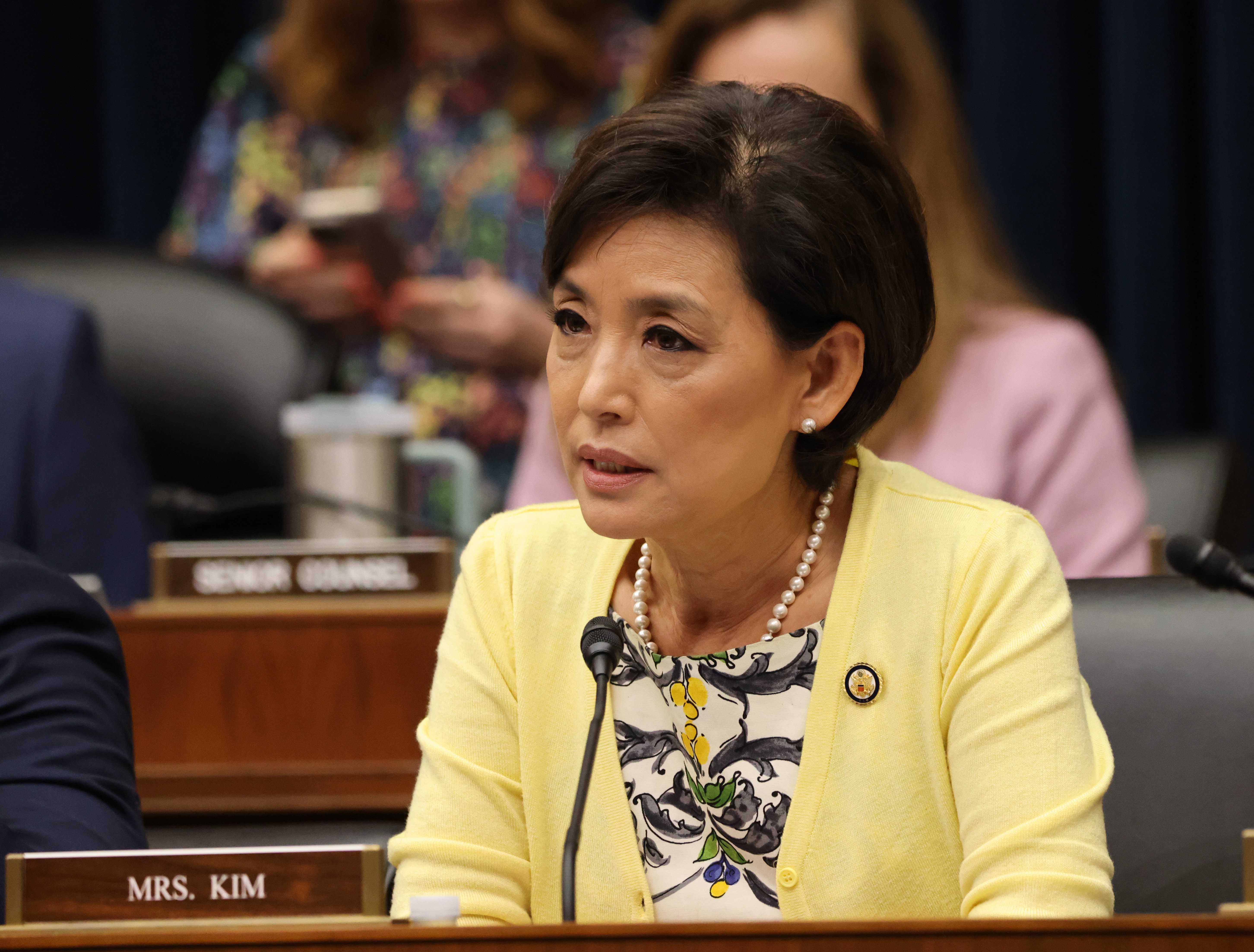The Hong Kong government has slammed a bipartisan group of US lawmakers for introducing a bill to sanction 49 Hong Kong judges, prosecutors, and government officials “accountable for human rights violations.”
The Hong Kong Sanctions Act, introduced by US Representatives Young Kim, Jim McGovern, and John Curtis on Wednesday, named the city’s justice chief, police commissioner, and designated national security judges as figures to be sanctioned.
In a statement issued shortly after the introduction of the bill on Friday morning, a spokesperson for the government condemned the US lawmakers, claiming the implementation of the national security law had “enabled the livelihood and economic activities of the Hong Kong community at large to swiftly resume as normal and the business environment to be restored.”
Beijing inserted national security legislation directly into Hong Kong’s mini-constitution in June 2020 following a year of pro-democracy protests and unrest. It criminalised subversion, secession, collusion with foreign forces and terrorist acts – broadly defined to include disruption to transport and other infrastructure.
The move gave police sweeping new powers, led to hundreds of convictions amid new legal precedents, whilst dozens of civil society groups disappeared. The authorities say it restored stability and peace to the city, rejecting criticism from trade partners, the UN and NGOs, despite an overall rise in crime.
‘So-called’ sanctions
“The Hong Kong SAR turns its nose up at these so-called ‘sanctions’ without any fear of intimidation, and it will continue to steadfastly fulfil its responsibility to safeguard national security,” the statement read.
“The SAR government strongly urges these American politicians to recognise the facts, immediately cease their actions that are inconsistent with international law and the basic principles of international relations, and stop interfering in Hong Kong affairs, which are purely China’s internal affairs.”
Congresswoman Kim, who chairs the US House Subcommittee on the Indo-Pacific, said in a statement that the act was introduced “to hold Hong Kong officials accountable for human rights violations and stand with Hong Kongers facing scrutiny under Beijing’s ‘national security law’.”
She also pointed to the high-profile national security trial of pro-democracy media tycoon Jimmy Lai, the founder of defunct newspaper Apple Daily. It is expected to get underway in December, after being delayed for more than a year.
Last December, he was sentenced to five years and nine months in prison for fraud after he was found to have breached the terms of lease of the newspaper’s headquarters. He has been detained since December 2020.
“Jimmy Lai’s case is unfortunately just the latest example of Beijing exploiting its ‘national security law’ to exert control of Hong Kongers,” she said.
The sanctions act requires the US president to determine whether Hong Kong officials had violated human rights and if sanctions should be imposed, according to the statement.
The bill, if passed, would require the White House to decide within six months whether to sanction the officials under existing legislation, including the Global Magnitsky Human Rights Accountability Act and Hong Kong Human Rights and Democracy act.
The bill is also backed by senators Dan Sullivan and Jeff Merkley, co-chair of the US Congressional-Executive Commission on China. Kim, Curtis, and Sullivan are Republicans, while McGovern and Merkley are Democrats.
In a statement issued on Friday, the Law Society of Hong Kong said it “strongly condemns any attempt to interfere with the administration of justice or challenge the rule of law, judicial independence, prosecutorial or governance integrity.”
The society added that judicial independence was “constitutionally entrenched” in the city, and that the national security law was enacted in accordance with the Constitution of the People’s Republic of China and the Basic Law.
“Any attempt to exert pressure by the implementation of sanctions against a judge, a prosecutor or a government official due to the type of cases that he or she is assigned to handle … is an affront to the rule of law and judicial, prosecutorial and governance integrity,” the statement read.
The Hong Kong Bar Association also noted the introduction of the bill, writing in a statement on Friday that it was “justifiably confident that Hong Kong judges have always and will continue to operate independently and apolitically.”
“The HKBA condemns in the strongest terms any attempts by anyone, anywhere, to impose sanctions on Hong Kong judges, judicial officers and legal practitioners. These amount to an improper interference with the administration of justice in Hong Kong and its independent judiciary,” the statement read.
National security
In May, the US Congressional-Executive Commission on China accused Hong Kong judges of playing a role in establishing a “de facto parallel legal system” with the Beijing-enacted national security law, under which procedural rights such as trial by jury and presumption of innocence were “routinely violated.”
The panel described the selection process of designated national security judges as “opaque,” adding that the Office of the Chief Executive refused to disclose the full list.
The bill introduced on Friday calls for sanctions against Secretary for Justice Paul Lam, Secretary General of the Committee for Safeguarding National Security Sonny Au, and police commissioner Raymond Siu. It also names all but two of the city’s handpicked national security judges.
District Judge Adriana Noelle Tse Ching, who on Tuesday sentenced four former student leaders at the University of Hong Kong to two years in prison each, was one of the designated judges named in the bill.
Deputy District Judge Amy Chan was also among those named. In October, she convicted an elderly busker who who played a popular Hong Kong protest song and sentenced him to 30 days in prison, saying his offences amounted to “soft resistance.”
District Judge Stanley Chan, also one of the 49, in October found six people guilty of rioting in Yau Ma Tei in 2019, casting doubt on their alibis in his verdict.
Also on the list are prosecutors including Deputy Director of Public Prosecutions Jonathan Man, who is responsible for the landmark national security trial involving 47 prominent democrats arrested and charged under the security law with “conspiracy to commit subversion,” after they organised primaries in a bid to win the 2020 legislative election.



